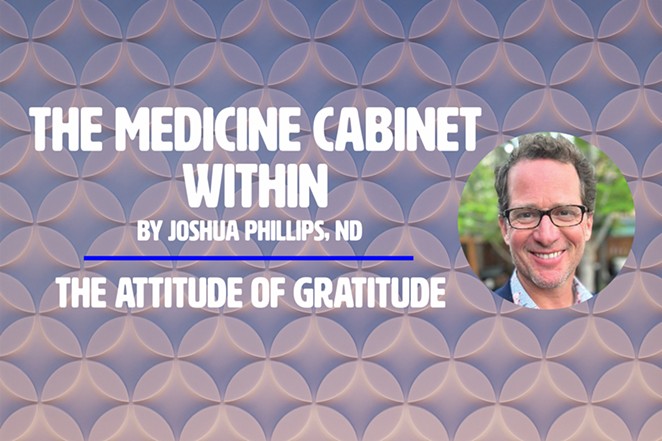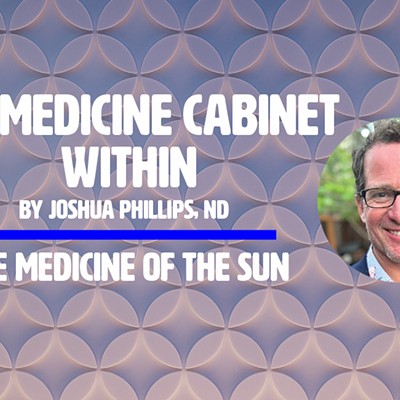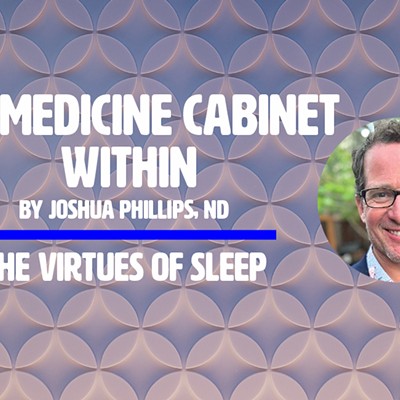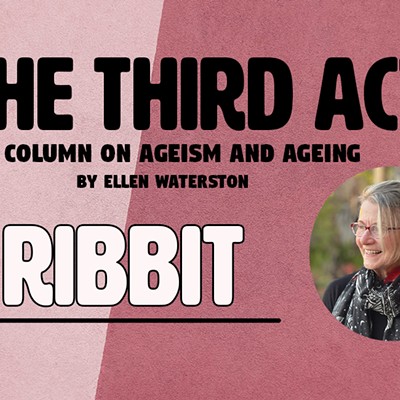You know that friend or family member who is endlessly bubbly and upbeat, seemingly living life without a care in the world? Conversely, you can probably think of more friends and family who seem to be complaining and grumbling about everything under the sun — whether it be about their personal lives, politics or world events.
There are many ways to move through life, and regardless of one's personal circumstances, we do have degrees of choice for how we hold and feel about our experiences, and what we see going on in the world around us. Even when faced with adversity, it is possible to find a mental stance where we not only address negativity authentically, but also lean into an attitude of appreciation and joy.
There has been a great deal of study on the subject of gratitude, and how the experience of feeling and expressing appreciation impacts our quality of life, and even our health. Neuropsychologists and scientists have begun to uncover the link between our feelings and thoughts and their impact on our brains and physiology, and it appears that through practice, this can be a self-fulfilling process. There is an emerging theme in research which is that "behavior changes biology."
One lens to look at this through is that of neurochemistry, and in studies that have been conducted, it appears that feeling and expressing gratitude is one important way to positively influence levels of dopamine, serotonin and oxytocin in our brains and bodies. These are part of our body's feel-good chemistry and can help us be more positive and hopeful about our lives, and life in general. This mental/emotional stance also contributes to a decrease in stress hormones and a balanced nervous system, and because of what is understood to be a "plasticity" of the brain and nervous system, we essentially have an opportunity, through expressing gratitude, to begin to wire ourselves for greater joy and positivity.
It won't come as any surprise then, that the feeling and expression of gratitude has tremendous impacts on our mental, emotional and physical health. Of the many studies that have been conducted, we've learned that those practicing gratitude have lower levels of depression and anxiety, report higher levels of self-esteem, are more resilient to difficulty and struggle and are in general more hopeful and optimistic. Furthermore, appreciation and gratitude also help individuals cultivate patience, as well as being more likely to forgive and move on from difficult events.
Health benefits for those who adopt a stance of gratitude are also varied and many. Gratitude has been shown to be consistent with lower blood pressure and overall improved cardiovascular health. Improved energy and sleep, especially for those who write in a "gratitude journal" before bed, can be expected. Those in gratitude studies report decreased levels of chronic pain, and lab results associated with these studies reveal improved blood sugar regulation, decreased biomarkers for inflammation and overall improved immune system function. The list goes on and on.
While I would never advocate for ignoring feelings of sadness, stress or anxiety, I do believe that while we address the roots of these emotions, we can also begin a regular practice of gratitude.
Furthermore, sharing feelings of appreciation with those around us feeds our own feelings of positivity as well as bringing a little more love and kindness to those around us. Based on the myriad of research that exists on the topic, here is a list of ideas to help grow your internal experience of gratitude (I'm sure you can think of more):
- Spend some time thinking about what you have (to contrast the thoughts of what you don't have)
- Celebrate minor accomplishments
- Start a gratitude journal, and jot down positive experiences and things you are thankful for
- Share with those around you some things you like and appreciate about them
- Write thank you letters or notes — shoot for one every week
- Practice random acts of kindness
- Volunteer
- Smile more
- Consistency is the key—just like exercise, diet, meditation, prayer, etc.—the more you create habit here, the more you will reap the benefits and the more you will pay it forward, giving others reasons to experience gratitude themselves
—Joshua Phillips, ND, is the director at Hawthorn Healing Arts Center in Bend. He can be reached at [email protected] for question or comment.

























